With no smartphones to study, students in Marathwada toiling in the field
Aurangabad, Maharashtra: The COVID-19 pandemic and the ensuing lockdown has affected the education of students in the Marathwada region of Maharashtra. Belonging to poor families, most of the students have been forced to work in agricultural fields as they can’t access online education.According to a NITI Aayog report, 55,000 villages in the country are without mobile network coverage, while mentioning that only 28% of students in rural households are likely to have internet access at home. Anisha Veer, 20, a resident of Beed district, has been working in the agricultural fields to save money and buy a smartphone that would help her continue her education. Her parents work as farm labourers as well. She earns Rs 200-250 a day.She mentioned that once the lockdown was enforced, the lectures started being conducted online and since she doesn’t have internet-enabled devices, she has been unable to study. Since the lockdown, she has earned Rs 2,500 and says she needs to get Rs 7,000 more to buy a smartphone or tablet. Anisha and Nisha Veer working in a field. Credits: Aamir HussainAnisha’s sister Nisha, who is in the first year of her undergraduate programme, is also working to buy a smartphone. She mentioned that she’s also preparing for the civil services, and stated, “Subjects like History and Geography require wider exposure, and online lectures and digital content help clear many concepts.”Like the Veer sisters, there are hundreds of young girls who are working in the field to earn money for smartphones.Durga Gaikwad, a class 10 student, stated that there was no work during the monsoons and she has only managed to save Rs 2,000. Durga studies in the Zilla Parishad school of Ashok Nagar and fears that she might have to take a gap year for her studies and continue later.She said that even their relatives and friends are suffering financially owing to COVID-19 and are unable to help each other. Students toiling in the field to earn money. Credits: Aamir HussainGanesh Kalasne, a farm labourer from Kanhegaon, has two daughters who study in standard one and three. “My daughters keep asking me to buy a smartphone. I do not even have a proper roof for family. I am not sure how to earn extra money to buy my children smartphones to study,” he stated.Kalasne mentioned that the government should help and ensure that unprivileged students don’t suffer. Kishkinda Panchal, a Beed-based social worker, stated that there are many students who need help, but it’s difficult because it would require a lot of funds. Panchal added that they have sent letters requesting the government for help. Prashant Pawar, state vice president of Maharashtra Pradesh Congress Committee, Beed, told 101Reporters that the government has closed the school, but has adopted online education. However, the digital divide is clear between the students in rural and urban parts. Pawar mentioned that many students in Marathwada don’t have access to smartphones or internet-enabled devices, and even though some students manage to procure a device, their financial condition doesn’t allow them to spend money on online courses or high-speed internet. Pawar, who is also the director of the education board in Beed, said the technology-starved students may lag behind when competing with the privileged students and being forced to take a gap year is an injustice. He informed that there are frequent cases of children arguing with their parents asking them to buy smartphones and when the parents are unable to afford it, the situation affects their relationship. He mentioned that efforts are being taken to bridge the digital divide by understanding the problems of the rural students and conducting fundraisers to raise money.
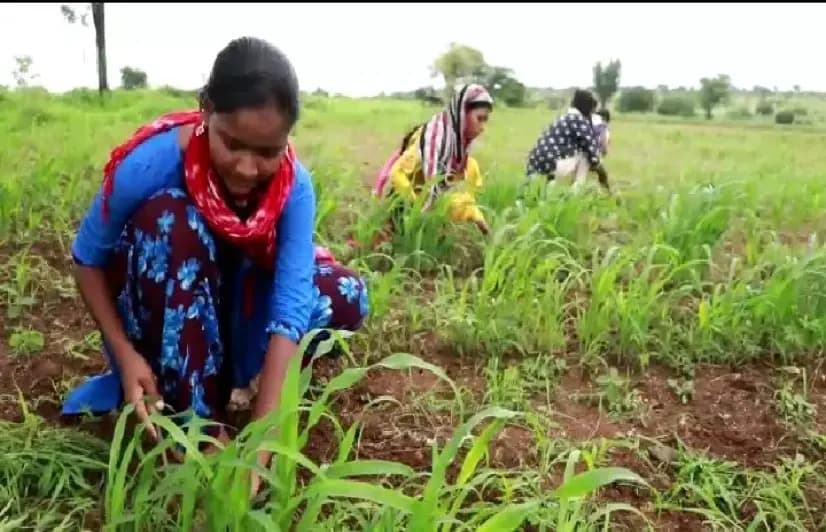
With no money in hand, a family of four dig well in their backyard to mitigate water crisis
Pune, Maharashtra: The Marathwada region is infamous for the drought-like conditions and water scarcity it faces during the summers. Each year, the water crisis goes on till the monsoon provides some respite to the residents of the region, but a family in Beed decided to address the problems on their own.Residents of Datta Mandir lane in Beed city, Nagnath Taak (48) and his sons Shubham (22) and Kartik (20) decided to dig a well in their porch to address the water woes. “We face water scarcity every year and receive water from the public tap once in 25 days during summers. The amount of water received is not sufficient and also irregular, thus, forcing the community to rely on water tankers,” stated Nagnath.He mentioned that relying on the community tap for water was causing them problems and the delayed monsoons brought attention to the water scarcity. Then, in February, they had engaged some people for construction work and even they complained of water scarcity, he added. The masons then suggested that they would dig up a well. However, the Taak family decided to delay the work against the demanded sum of Rs 50,000. Despite spending so much money to get the well dug, they’d have to spend additional money to pump the water to the surface, argued Nagnath.Nagnath stated that Kartik suggested that they just find a corner and start digging the well by themselves while admitting that he found the idea to be off-limits. He stated that neither he, who is a cook, nor his sons, who are jewellers, had the knowledge to go about digging a well.However, Kartik insisted and procured some tools to initiate the work on May 2. They’d dig the well from 10 am in the morning to 2 pm in the afternoon, in turns, Kartik stated. He mentioned that conversations with the masons gave them an idea that they could find water about 25 feet below the ground. However, even after digging for 15 days and reaching approximately 25 feet in depth, they could only find some moist soil and rocks, he added. Losing the initial enthusiasm and confidence, Nagnath and his sons, decided to continue digging two feet each day and not exert much. On May 23, they finally got some hope as they saw some water saturated in the ground, informed Shubham. “We continued digging until we gained access to the natural groundwater reservoir,” he added. Overwhelmed by the success, they secured the walls of the well with concrete and set up a water pump.Shubham mentioned that the digging work had become a talk of the lane where they reside and people were overjoyed when they came to know that the father-sons trio had found a stable water source. As everyone in the area continued to suffer owing to the irregular water supply, they decided to open the water supply for the locals, he added.Shubham stated that the water pump was connected to a water tap outside the house and since then, about 22 families in the locality use the water from the well. A resident of the lane Arbaaz Shikalkar stated that after the Taak family dug the well, the uncertainty, which surrounded the water availability, has ended. He highlighted that they would spend about Rs 300 in procuring water tankers on a regular basis and had to hunt for water from other sources if the tankers weren’t available. Shikalkar mentioned that the well benefits the whole community. He added that they have no idea on how long they can get water from this source or how long it’ll take the groundwater source to replenish, when exhausted, but they are making good use of the water that is available now. Anupam Kashyapi, head, Weather & Air Pollution Monitoring Unit, India Meteorological Department, Pune, told 101Reporters that the Marathwada region witnessed 40% more rain this year than the average rainfall and the water storage in the region is expected to rise as more spells of rainfall are expected. While admitting that water scarcity was reported in some parts of the region, the district agriculture department feels that the water woes in the region will be addressed by the surplus rains this year. “Good rainfall has resulted in water recharge in dams and reservoirs. We are expecting good produce,” stated Rajendra Nikam, an agriculture officer at Beed.Nikam added that though some pockets faced some water issues, the rains this year promise better water storage than last year.
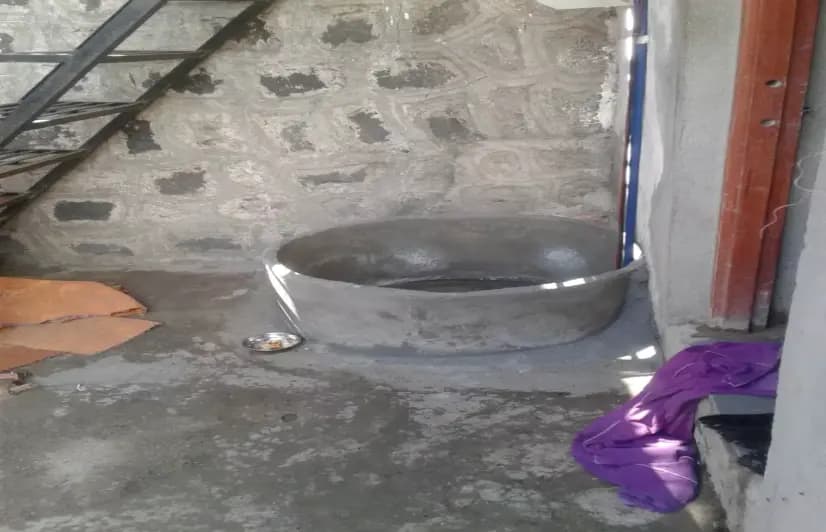
Temple town Trimbakeshwar goes bankrupt due to COVID-19
Trimbakeshwar, Maharashta: The temple town Trimbakeshwar, one of the 12 Jyotirlingas (Lord Shiva shrine) in India, is facing an economic crisis owing to the COVID-19 pandemic. Located about 25 kilometres from Nashik, Maharashtra, the town has a population of about 12,500 people, out of which over 10,000 people are directly or indirectly dependent on the temple for their livelihood. Over 1.5 crore pilgrims visit this temple town annually, often for rituals like Kaalsarpa dosh and Narayan Nagbali. However, with the lockdown extended, the Trimbakeshwar temple trust has suffered a loss of around Rs 50 crore in the past three months. Also, there is no hope of seeking any relief from the government on the opening of the religious places. Prashant Gaydhani, president of the Trimbakeshwar Purohit Sangh, a body of priests, mentioned that about 3,500 purohits (priests), on whom 200 families are dependent, have been impacted by the lockdown. He added that apart from the priests, people who are directly or indirectly related to the religious rituals or tourism, including the flower vendors, prasad (food that is religious offering) shops, clothes, jewellers and auto-rickshaws drivers have also been affected.He said that while the town would make about Rs 15-20 crore each month, the Trimbakeshwar Devasthan Temple Trust would earn about Rs 1 crore, but estimated that about 75% of the town’s population hasn’t earned anything since the lockdown was announced. Gaydhani, who is also one of the trustees at the Trimbakeshwar Devasthan Trust, stated that since the number of COVID-19 cases is increasing daily, the municipal council has announced total lockdown until the end of this month, even though it is the holy month Shravan, according to Hindu calendar. Open temples: Priest body memberGirish Joshi, a priest who conducts rituals at the Trimbakeshwar temple, mentioned that Shirdi, Saptashringi and Trimbakeshwar form an ideal religious triangle for the tourists and they prefer visiting these places in one trip. Apart from the Shravan month, people visit in large numbers during Mahashivaratri as well, he mentioned, adding that the entire town has been affected by the lack of pilgrims.Meanwhile, some priests are offering virtual ritual services. However, their act was condemned by the Trimbakeshwar Purohit Sangh and the priests facing the heat. Lokesh Akolkar, who is a member of the priest body, stated that there is an emotional and spiritual connection in these rituals and the physical presence along with the geography is of utmost importance.Akolkar mentioned that such rituals are not bank transactions and the benefits cannot be guaranteed. “Is it possible to take the wife’s photograph to show it to the doctor to cure any ailment? The same is with these rituals. The presence of the person is important even for moral satisfaction. It is not technically possible,” he added. The priest body has already approached the state government, district collector and guardian minister Chhagan Bhujbal to allow them to start performing rituals again. He argued that if the alcohol shops are operational and rituals for last rites are allowed in Nashik, then why are the rituals not allowed here, if they could observe the social distancing rules and people performing the rituals are allowed in small numbers.Citing the example of Odisha’s Jagannath Rath Yatra, he said that the religious places should be opened, as a large number of people are dependent on it. Entire town affectedPriest Joshi stated that most of the people in the town have small farms and are reliant on their produce for daily sustenance, but the extended lockdown has forced people to ration supplies and dip into the reserves.Bharat Joshi, a manager of Lokhandwala Dharmshala (inn for pilgrims), stated that there are 16 rooms in the inn and they are at least 70% occupied throughout the year, but now they are all vacant. He added that since they have no business, all the staff has left.Amit Kale, the owner of Radhika Inn Hotel, mentioned that they have 25 rooms and a restaurant, and used to serve about 10,000 guests each month. Now, he estimates that it would take more than two years to recover from the losses. Along with the turmoil of the religious community, the Trimbakeshwar Municipal Council, the local governing body is also facing a cash crunch. Pravin Nikam, chief officer at the local body, mentioned that the council earns annual revenue of about Rs 2.5 crore, but not even 50% of the funds have been generated this year. He added that without any income for the people, the council cannot force the citizens to pay the water and other taxes this year. Nikam informed that about Rs 60 lakh of the total revenue is earned from the pilgrim footfall, and is subsequently spent on sanitation and water supply, but they have had to stop all the developmental works for this year and micro-budgeting the expenses with current revenue. The staffers and contractors also resorted to protests earlier this month and have stopped working, he stated adding that they are paying the employees with the funds they have left.
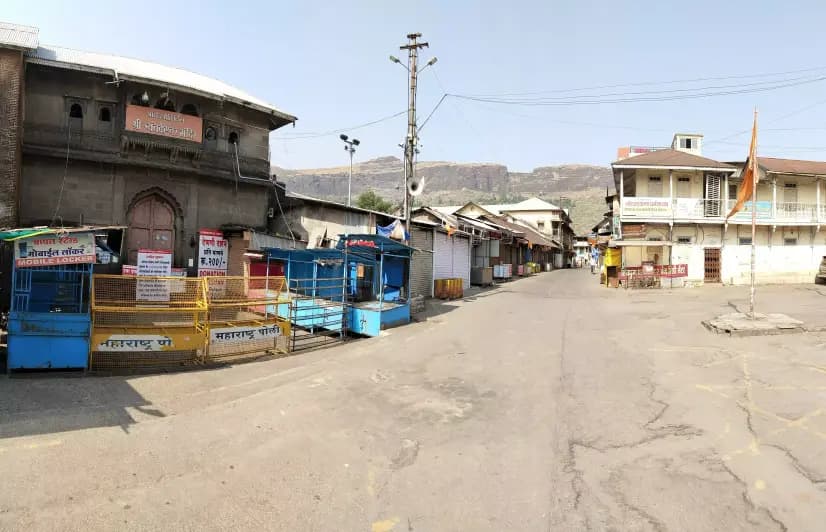
IT employees turn fruit vendors, printers and cab drivers
Ganesh Shitre, 30, a resident of Pune and a former employee at Sensabyte Edusoft Private Limited, an IT company, was asked to resign in March, without any prior notice by the company, leaving him unemployed overnight, like many others. He has to pay off his education loan and also support his family of four. However, he decided to try out something to earn money. “I thought of entering the marketing sector, and the coronavirus crisis was at the peak. I started working on designing and creating printed masks. Eventually, I ended printing on mugs, pen drives, calendars, t-shirts, bottles and everything that could be possible,” he stated.Like Ganesh, many IT employees have been laid-off during the COVID-19 lockdown and are resorting to odd jobs or businesses to pay their monthly instalments along with supporting their families. Estimates by IT employees association state that over 50,000 IT employees have been laid-off alone in Pune or faced drastic salary cuts. After losing his job, Kartik (name changed upon request) started renting out his car for cab service. He stated that renting out his car is the only guaranteed income for him each month.Meanwhile, another ex-employee of Tech Mahindra from Pune, requesting anonymity, stated that he was laid-off in May and now has started selling spices through a dealership. Clash with bigwigsSome people have started taking help from their friends having different skills. Pravin Shilawat, who used to work as a system administrator till May, came up with an idea for a teaching app. However, he was wasn’t well-versed in coding so he asked his friends and worked with them on a prototype. Harpreet Singh Saluja, founder of National Information Technology Employees Senate (NITES), Pune chapter, said: “We are also locking horns with the employers on how these employees could get terminated overnight and forcefully. Meanwhile, the network of IT employees across India is pulled in to look for IT jobs for these individuals.” He said people seeking psychological support get assisted through the NITES through a programme Aadhar Abhiyan. Another platform addressing grievances of IT employees, Pavanjit Mane, president of the Federation of Information Technology Employees (FITE), told 101Reporters that they have been reaching out to the current employees about such sudden and illegal terminations. Then, the employees of IT firms inform them about demands to resign forcefully or face terminations without the salary, other dues and the relieving letter.Mane said that such steps are affected verbally, and HR heads avoid documenting such things on the record. “We are asking all the employees to document it on email for the record,” he added.Furthermore, the FITE is also encouraging the unemployed to start a business with their respective skillset and also promote their businesses locally. Mane added that legal support is provided to the employees. The cases are similar in Hyderabad and Bangalore, other major IT hubs in the country.Vinaykumar Pyaraka, the founder and president of Information Technology Employees Association (ITEA), Bengaluru chapter, stated that they are filing public interest litigations challenging the illegal termination of employees. He said he knows individuals who are now selling health insurance policies or personal belongings for survival. “The government claimed the revenue of the state has increased manifolded due to IT employees. If the IT employees are so crucial, then why are they not protected,” he argued.Chetan Jagtap, assistant labour commissioner (Pune), stated that IT employees are being asked to submit their applications and the employers are advised to negotiate with their former employees through a conciliation meeting. If the IT professional remains aggrieved, they are referring it to the court.
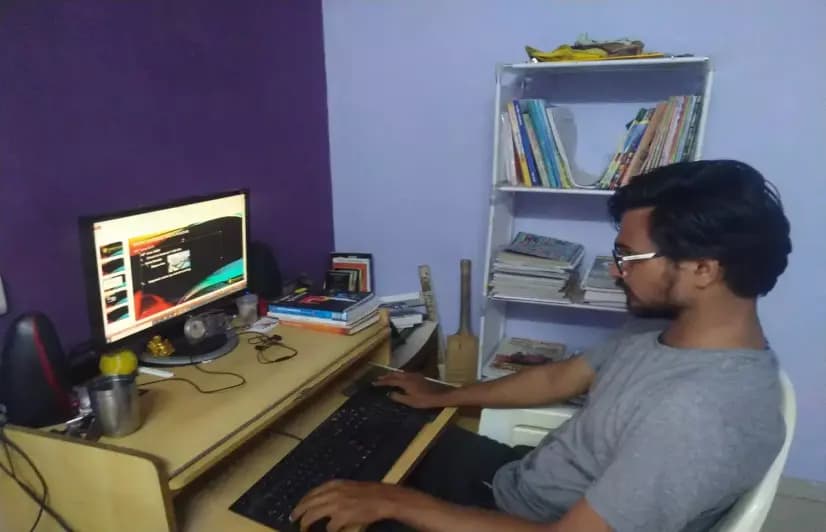
Covid-19 worsens plight of cotton farmers in Marathwada
Beed, Maharashtra: For the past 20 days, Kuldeep Karpe, a farmer from Beed district in Maharashtra, has been waiting his turn at the ginning (the first mechanical process in cotton processing) mill but his cotton yield is yet to be sold. With the approaching monsoon, farmers from the cotton belt of Marathwada region of Maharashtra are struggling to sell their produce owing to the delay and confusion caused by Covid-19.“I received a message on my mobile number informing about the token and asking me to bring the vehicle to sell my cotton to the ginning mill. It was 20 days ago and I am still stuck, waiting for my turn,” Karpe stated, adding that he is paying Rs 1,000 rent per day for the vehicle.He added that he has about 45 quintals (1 quintal = 100 kg) of cotton, while there is allegedly a shortage of graders (person who determines the quality of the produce) and if the monsoon starts, he is set to suffer a loss of Rs2-2.5 lakh as no one would buy cotton soaked in rainwater, he said.He said that even after selling his produce, he wouldn’t be able to earn a profit as he has to pay rents. He has decided to not sow cotton anymore and switch to growing baajra (pearl millet) or soybean.The lack of communication, shortage of graders and fewer mills operating have affected the numerous cotton farmers.In rural Marathwada, over 70% of the population depends on farming activities for its livelihood. The farmers usually sell their cotton yield in the first half of May. However, the lockdown to prevent the spread of Covid-19 affected the sale. Now, the farmers fear that monsoon will ruin their produce.Ravi Deshmukh, 54, a farmer from Aher Chincholi, Beed district, mentioned that since sowing was delayed because of late rains, the harvest was delayed. However, the farmers thought that they would be able to sell the cotton at the expected rate of Rs 3,400 per quintal, but then the COVID-19 crisis put a stop on the cotton procurement process. Deshmukh, who owns 20 acres of agricultural land to sustain a five-member family, had sown cotton in about five acres of the total land. He added that after the government announced that it will procure the cotton at Rs 5,400-5,700 (minimum support price - MSP), the struggle of selling the produce began as the transportation system is still not operating in full force.He highlighted that the farmers are now forced to sell their produce to private businesses at Rs 2,200-2,700 per quintal, which is much lower than the expected price or MSP.On June 2, hundreds of farmers resorted to Rasta Roko (road blockade) at the Mazalgaon Agricultural Produce Market Committee in Beed district. Prashant Pawar, state vice president of Maharashtra Pradesh Congress Committee, told 101Reporters that they have raised the issue of graders with the district collector.In a written plea, Pawar underlined that though there are 125 ginning mills in the region, only 26 have been given the permission to operate, leading to long queues and shortage of graders. While stating the district collector has assured action against the issue, he mentioned that the graders are only selecting the staple (top quality) of the produce, which is about 35% of the total produce. Pankaja Munde, the Bharatiya Janata Party MLA from Beed, told 101Reporters that Chief Minister Uddhav Thackeray has already stated that the cotton yield would be purchased by the government by the end of September. However, when asked about monsoon damaging the cotton yield, a close aide of the MLA said there could be farmers suffering losses if the buying is delayed until late monsoon.Admitting to the damage already caused, the district deputy registrar co-operative societies, Shivaji Bade, stated that about 3,000 quintals of cotton have been soaked in the rains, but the cotton would be dried, and processed before it is sold again. However, Bade said the number of graders has increased from eight to 28 in the last couple of days, reducing their long working hours.
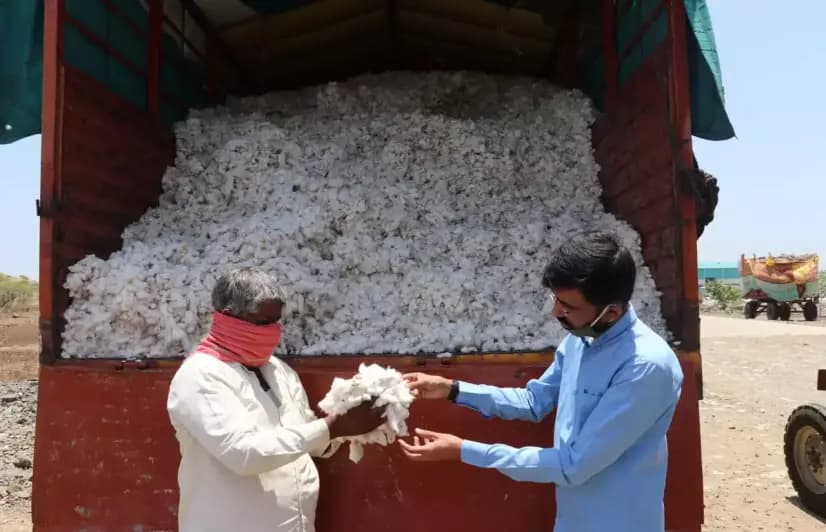
Write For 101Reporters
Follow Us On
101 Stories Around The Web
Explore All News